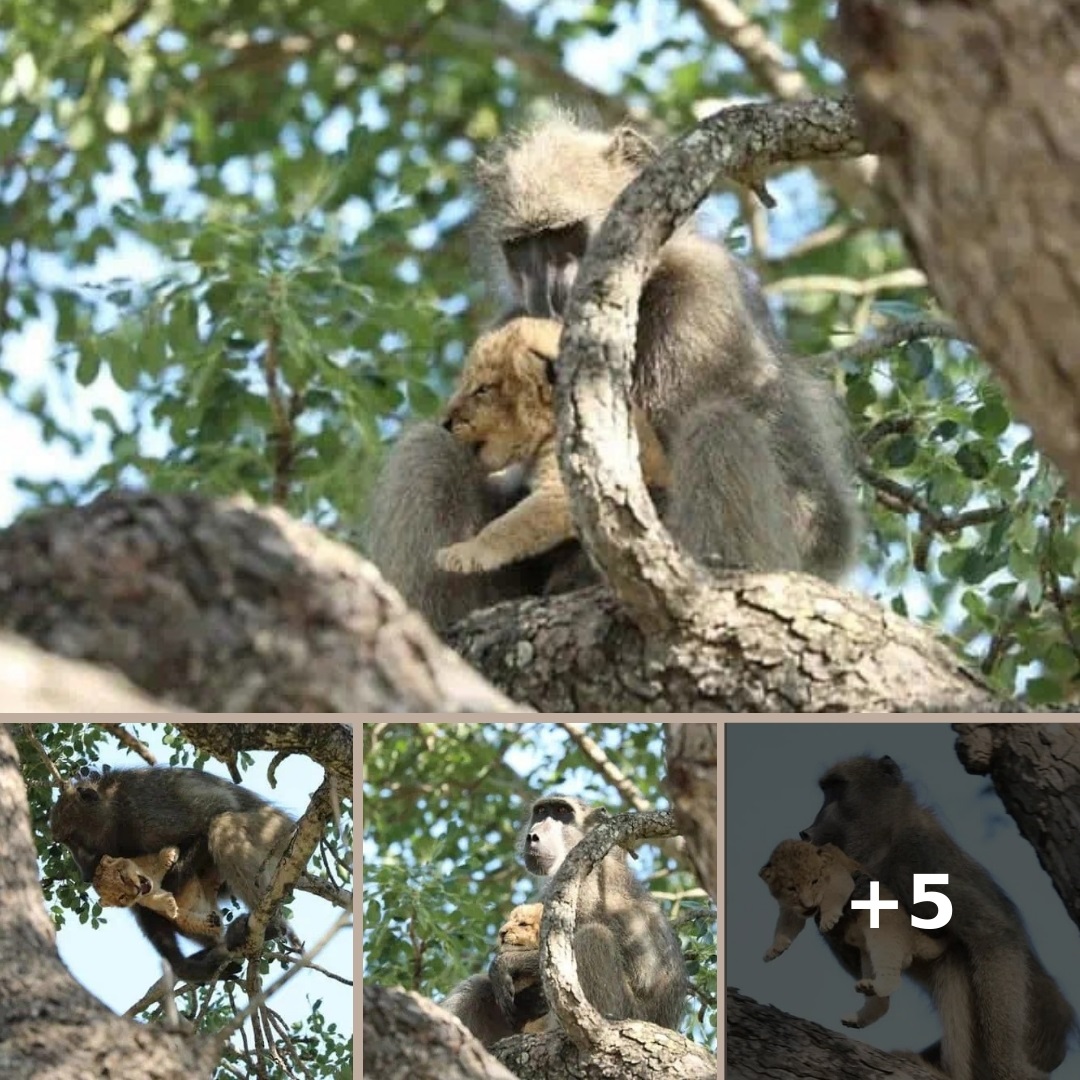In an astonishing event within South Africa’s Kruger National Park on January 1, a remarkable story unfolded, challenging the expectations of Nature—a baboon cradling a tiny lion cub as it climbed a towering tree.
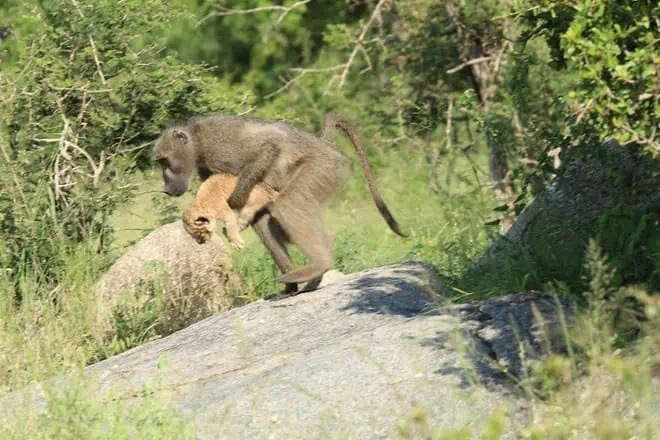
Captured by Kurt Schultz, a tour operator with Kurt Safari, this heartwarming yet bewildering scene left spectators in disbelief.
As Schultz and his team observed a group of lively baboons, their attention was drawn to the unusual sight of a lion cub nestled in the arms of one of the baboons.
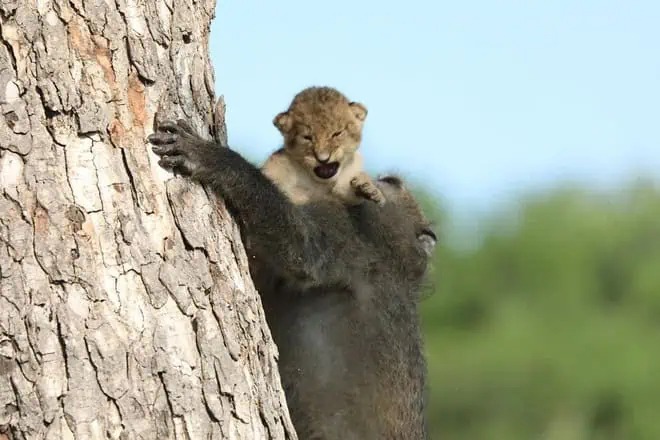
The apparent bond between the male baboon and the lion cub defied conventional wildlife behavior, sparking curiosity and wonder among observers.
Initially presumed lifeless, the lion cub surprised onlookers as the baboon carried it across the road, scaled a tree, and began grooming the tiny creature. Against all odds, the lion cub was alive, defying expectations.
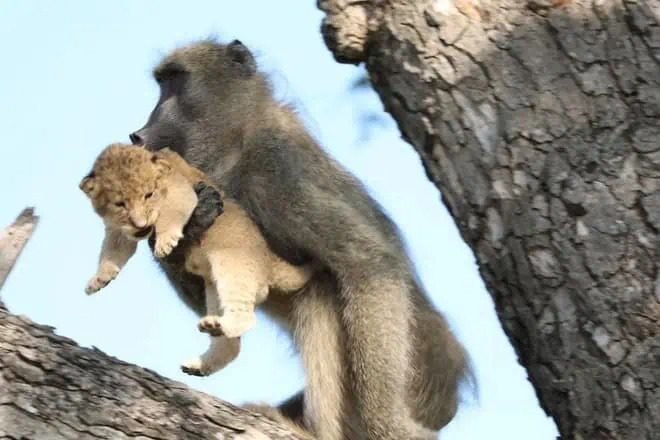
Baboons, typically known for their territorial aggression, rarely exhibit caretaking behavior towards the young of large animals like big cats.
This exceptional behavior challenges the usual narrative of wildlife survival, where competition and aggression prevail.
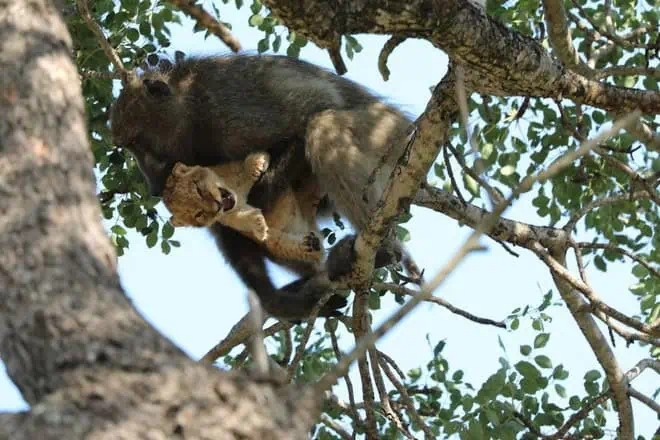
Schultz, in an email to IFLScience, highlighted the rarity of the situation, noting, “During my 20 years as a guide in south, east Africa, and 20 years here in Kruger, I’ve seen baboons attack and destroy leopard cubs and have heard of baboons killing their cubs. Lions, but I’ve never seen them care for their cubs like this.”
While the male baboon’s grooming of the lion cub resembled maternal care, it was apparent that the experience was less than ideal for the young feline.
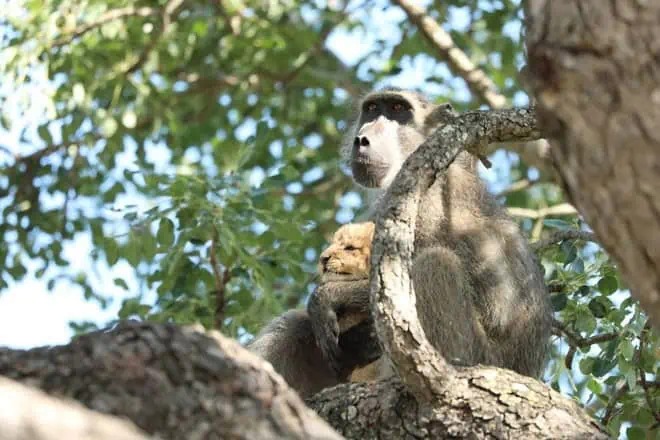
Exhausted and possibly suffering from internal trauma, the cub faced slim odds of survival.
In the unforgiving realm of the natural world, interference is not an option, and Nature follows its course. Despite the poignancy of the event, it highlights the harsh realities faced by wildlife.
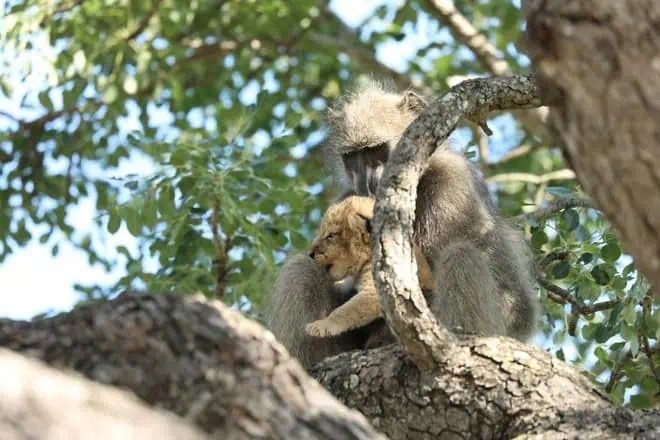
The area where the incident occurred is a known hiding place for lion and leopard cubs during their mothers’ hunts, exposing them to hunger, thirst, and potential danger.
Although observers may draw parallels to scenes from “The Lion King,” the real-life struggle for survival paints a far harsher picture.
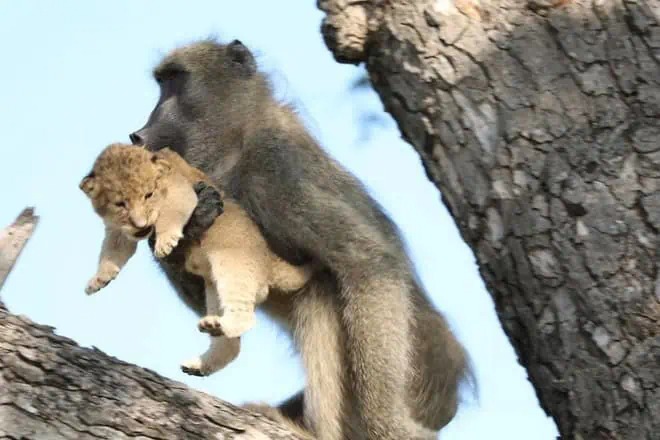
Unlike captivity, where different species may form unlikely bonds, the wild remains relentless, and the fate of the lion cub remains uncertain.
While acknowledging the sadness, Kurt Schultz emphasizes Nature’s role in shaping such occurrences, stating, “Nature works its way, and we can’t interfere. Our job is to keep Kruger in place.”
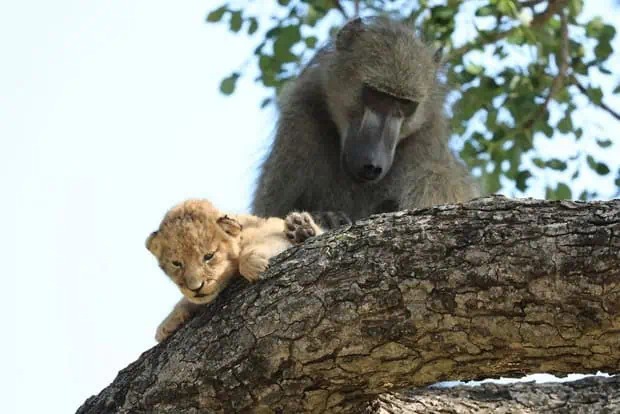
The heartwarming yet challenging tale of a lion cub raised by a baboon is a testament to the unpredictable nature of the wild.
Against all odds, this extraordinary encounter prompts reflection on the complexities of survival and the fragile balance within ecosystems.
